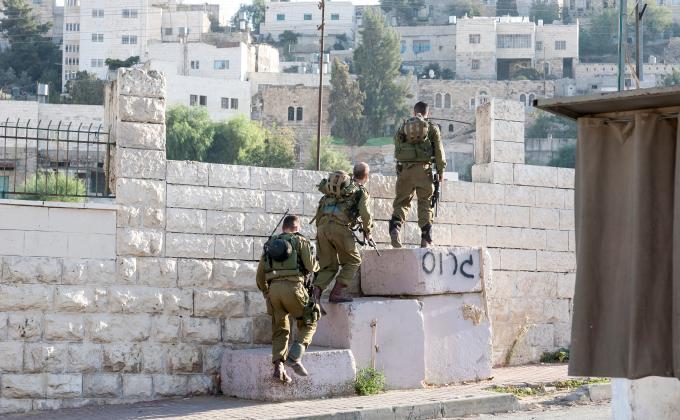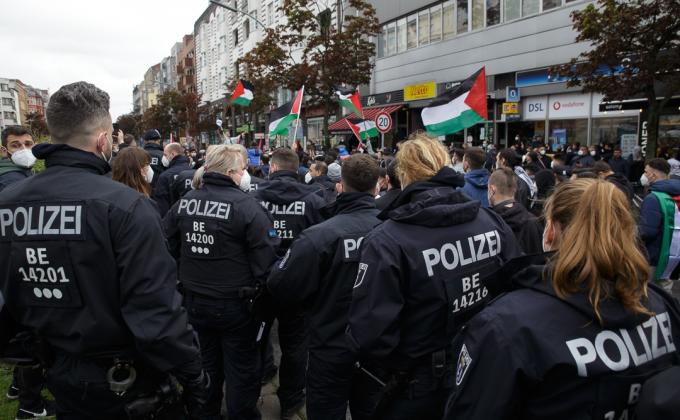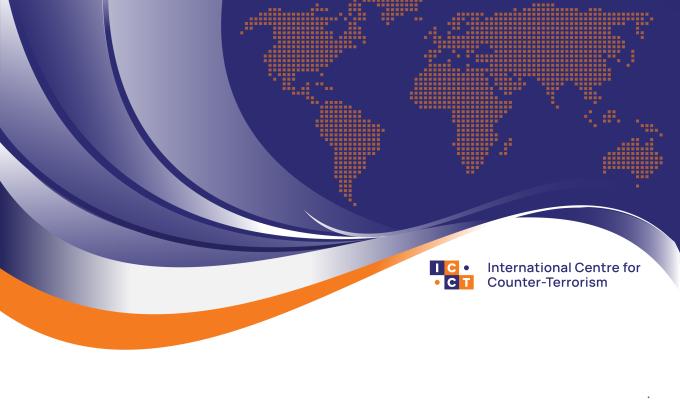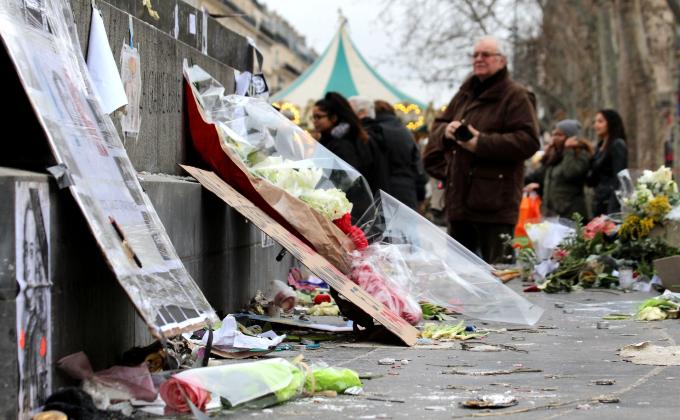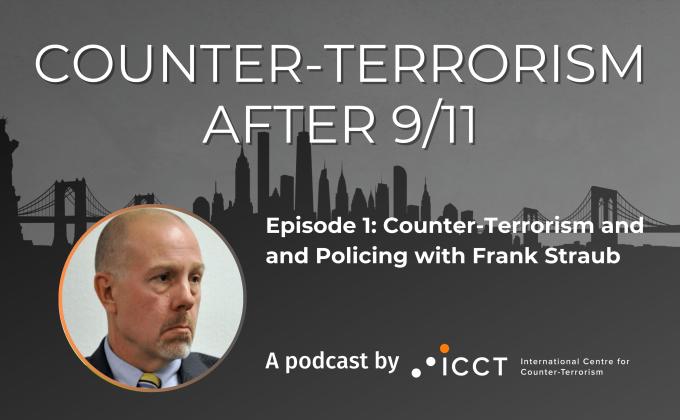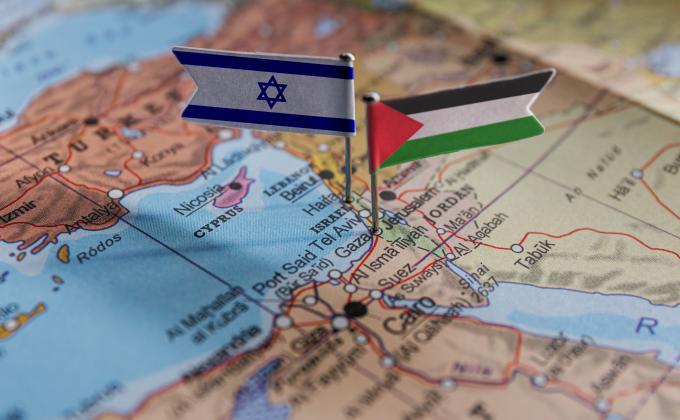This piece is based on an op-ed that was originally published on November 7th, 2023, in De Morgen
The horrific attacks and hostage taking by Hamas on 7th October have reignited the conflict between Israel and Palestine, with major consequences for the Palestinians in Gaza. Hamas has shown it has a genocidal agenda aimed at the extermination of all Jews and destruction of the State of Israel, and is even willing to sacrifice the lives of Palestinians with their carefully orchestrated attacks of 7th October. But looking only at the recent actions of Hamas or Israel does not do justice to this long-standing conflict. The ripple effects of the conflict can be felt far beyond the region.
Israel has every right to defend its citizens, but it is disputed whether Israel also has the right to self-defence, because this right only applies to states and Gaza is de facto occupied by Israel. This attack – which Israeli intelligence failed to anticipate – killed the largest number of Israeli civilians since the independence of Israel. Palestinians have the right to self-determination, even if Hamas undermines any attempt at a two-state solution. Hamas may have been legislative elected in Gaza in 2006, but a recent poll conducted by Arab Barometer indicated that the vast majority of the Palestinians in Gaza and the West Bank do not support Hamas.
How the West positions itself in this conflict is crucial. International humanitarian law applies to the conflict between Hamas and Israel, it does not take sides, and neither should states. All parties must adhere to international law, and the fact that Hamas violates this does not absolve Israel from the obligation to comply with international humanitarian law.
It appears that Europe is unable to speak with one voice. Ursula von der Leyen was one of the first to visit Israel and now European leaders are paying a visit one after the other expressing their support for Israel. Spain and Ireland are an exception and have a critical attitude towards Israel.
As the West continues to stand behind Israel, a double standard is applied. De facto, Gaza is still occupied, even though Israel officially withdrew in 2005. The International Court of Justice ruled in 2004 that the wall around the West Bank was illegal and that building of settlements violated international law. Israel has ignored this advisory opinion and by many Western countries. Since 2012, Palestine has had observer status at the UN and is now recognised as a state by 138 of the 193 UN countries, but not by most Western countries.
In 2021, the International Criminal Court (ICC), of which Palestine is a member, concluded that the Court has jurisdiction in the occupied territories of Gaza, the West Bank and East Jerusalem, and can thus prosecute international crimes that have been committed there. In 2022, the UN General Assembly requested the International Court of Justice to determine the legal consequences of Israel's continued occupation and annexation of Gaza on Palestine's right to self-determination. Unsurprisingly, most Western countries voted against or abstained. After the fall of Afghanistan and the outbreak of the war in Ukraine, the ICC prosecutor Karim Khan made statements immediately. In the case of this conflict, he visited the border between Gaza and Egypt only after three weeks.
The UN is also struggling to take a clear position, and the UN Security Council has failed to adopt a resolution after several attempts. The UN General Assembly adopted a resolution with great difficulty, calling for compliance with international humanitarian law, and particularly the protection of civilians. Several Western countries abstained from voting.
As the conflict continues, the number of casualties keep soaring, and the political pressure is growing among Western countries. This lack of inconsistency of the West sends the wrong signal and undermines the international legal order by not holding Israel accountable for its obligations under international law. That does not mean that Hamas is exonerated, and should also be held accountable for the crimes they have committed. Applying double standards can cause a rift between countries, leading to anger and can even contribute to creating a breeding ground for terrorism.
The terrorist threat has changed significantly in the West. After a long period in which jihadist terrorism was the main threat, the focus has shifted to right-wing extremism and, increasingly, anti-institutionalism is a cause of great concern. Yet, the threat of jihadist terrorism also remains. Several attacks have been foiled, including the arrest of five people in Sweden who were preparing an attack following the Quran burnings. In fact, in the most recent threat assessment in the Netherlands from May 2023, the risk of a terrorist threat has increased, partly because of IS-driven groups in Syria and Afghanistan. Since then, the threat level has been raised in France and Sweden.
Although they have a different agenda, IS and al-Qaeda, as well as smaller violent Islamic groups, will probably benefit from the current conflict. The recent Quran burnings in Sweden, the attacks by Hamas, the military response by Israel can all contribute to fuelling a rise in violent extremist and/or jihadist terrorism. Across Europe, there was already an attack on a teacher in France, the shooting of two Swedish football fans in Brussels, and increasing anti-Semitism, such as painting houses with the star of David, attacks against Jewish institutions, and closing of Jewish schools out of precaution. Several civil liberties are also being restricted, in some countries there is a ban on pro-Palestinian demonstrations, the use of the Palestinian flag or the chanting of the slogan 'from the river to the sea' out of fear for violence. These are just a few of the many examples of increasing unrest, polarisation and violence in various European countries.

